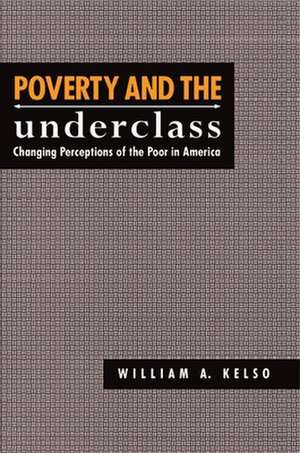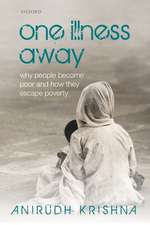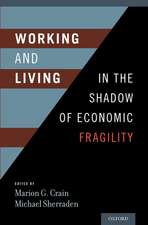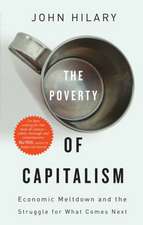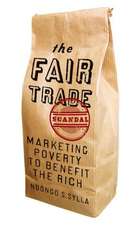Poverty and the Underclass – Changing Perceptions of the Poor in America
Autor William A. Kelsoen Limba Engleză Hardback – 30 sep 1994
| Toate formatele și edițiile | Preț | Express |
|---|---|---|
| Paperback (1) | 243.76 lei 43-57 zile | |
| MI – New York University – 30 sep 1994 | 243.76 lei 43-57 zile | |
| Hardback (1) | 528.52 lei 43-57 zile | |
| Wiley – 30 sep 1994 | 528.52 lei 43-57 zile |
Preț: 528.52 lei
Preț vechi: 686.39 lei
-23% Nou
Puncte Express: 793
Preț estimativ în valută:
101.13€ • 105.87$ • 83.68£
101.13€ • 105.87$ • 83.68£
Carte tipărită la comandă
Livrare economică 07-21 aprilie
Preluare comenzi: 021 569.72.76
Specificații
ISBN-13: 9780814746585
ISBN-10: 0814746586
Pagini: 352
Dimensiuni: 152 x 229 x 15 mm
Greutate: 0.58 kg
Ediția:New.
Editura: Wiley
ISBN-10: 0814746586
Pagini: 352
Dimensiuni: 152 x 229 x 15 mm
Greutate: 0.58 kg
Ediția:New.
Editura: Wiley
Recenzii
"An excellent introduction to the debate about poverty in America. He emphasizes how little we still know about this critical problem. Poverty in the land of plenty remains a mystery."
Lawrence M. Mead, author of The New Politics of Poverty "A thoughtful analysis of one of America's most vexing social problems. Kelso eschews the platitudes of both left and right to examine the intractable nature of poverty and its diverse causes. He is especially insightful in his dissection of the role culture plays in povertyand for the concern government should have for the character of its citizens."
Linda Chavez, author of Out of the Barrio: Toward a New Politics of Hispanic Assimilation "Kelso's book provides an excellent overview of poverty and the underclass in American society, along with perceptive observations about how contemporary views of the poor are changing."
Kenrick S. Thompson, Professor of Sociology, Northern Michigan University
Lawrence M. Mead, author of The New Politics of Poverty "A thoughtful analysis of one of America's most vexing social problems. Kelso eschews the platitudes of both left and right to examine the intractable nature of poverty and its diverse causes. He is especially insightful in his dissection of the role culture plays in povertyand for the concern government should have for the character of its citizens."
Linda Chavez, author of Out of the Barrio: Toward a New Politics of Hispanic Assimilation "Kelso's book provides an excellent overview of poverty and the underclass in American society, along with perceptive observations about how contemporary views of the poor are changing."
Kenrick S. Thompson, Professor of Sociology, Northern Michigan University
Textul de pe ultima copertă
In this timely work, William Kelso analyzes how the persistence of poverty has reversed liberal and conservative positions during the last thirty years. While liberals in the 1960s hoped to eliminate the causes of poverty, today they increasingly seem resigned to merely treating its effects. The original liberal objective of giving the poor a helping hand by promoting equal opportunity has given way to a new agenda of entitlement and equal results. In contrast, conservatives who once suggested that trying to eliminate poverty was futile now seek ways to eradicate its causes. Poverty and the Underclass suggests that the arguments of both the left and right are misguided and offers new explanations for the persistence of poverty. Looking beyond the code words that have come to obscure the debate - "underclass", "family values", "the culture of poverty" - Kelso emphasizes that poverty is not a monolithic condition, but a vast and multidimensional problem.
